Last Updated on July 30, 2021

One month a year isn't enough to recognize the talented women that make up the horror genre, so Arrow In The Head is starting a column dedicated to celebrating the female filmmakers, screenwriters, cinematographers, and stars that fill such irreplaceable roles within the cinematic realm. May their paths inspire others, and may we never forget their important contributions to the film world.
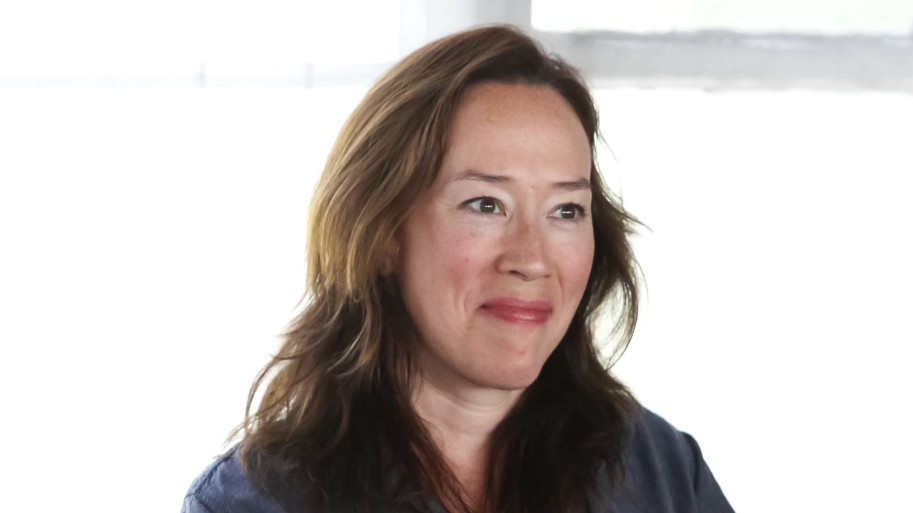 FILMMAKER KARYN KUSAMA
FILMMAKER KARYN KUSAMA
This entry features the renowned director Karyn Kusama, a.k.a. one of the finest filmmakers working today. A girl who fell in love with David Lynch at age 10, Kusama has been gradually building a career in film ever since, coming on the scene with her directorial debut GIRL FIGHT in 2000 before going on to helm such movies as ÆON FLUX, JENNIFER'S BODY, THE INVITATION, and the Nicole Kidman led DESTROYER. She also directed the segment "Her Only Living Son" in the all fully female directed anthology film XX, in addition to directing two episodes of the hit Showtime program BILLIONS and four episodes of AMC's HALT AND CATCH FIRE. A purposeful filmmaker, Kusama is known for telling impactful stories of female rage and the lengths to which women will go to process their grief.
As is customary, I'm going to include one of my favorite quotes by the filmmaker: “Maybe the illusion of freedom is just a sort of tool of social control. To me, [THE INVITATION] is a metaphor about a kind of cultural obsession that we have, with an aversion to feeling pain. I just, I don’t know, as I get older I really do start to think we need to think about pain as like smoke signals, and it’s an energy that’s warning us to pay attention, and to maybe be softer with ourselves or more forgiving of ourselves, and so the idea that you would tamp out the smoke signal creates all these terrifying possibilities. Here we are, a nation quite literally addicted to opioids, and it seems kind of, to me, what makes the movie timely is that it’s about this aversion to pain at any cost that blunts our humanity”.
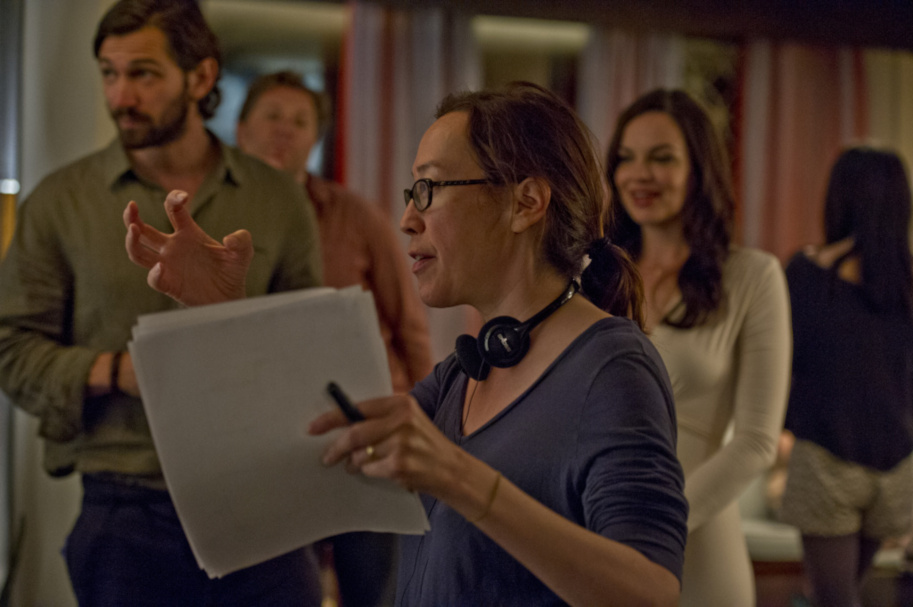 BACKGROUND: Born on March 21st, 1968, in St Louis, Missouri, Kusama is the daughter of Haruo Kusama, a child psychiatrist who immigrated from Japan to attend medical school at Washington University, and Susan McGuire, an educational psychiatrist of Scottish and Irish descent. At an early age, Kusama's mother took Karyn and her brother and sister to see David Lynch's ERASERHEAD, a wickedly surreal fantasy film about an alien baby that slowly deteriorates over the course of the movie. When one of Karyn's siblings started to cry, her mother ordered Karyn to take him outside. After obeying, Karyn watched the rest of the film on her tiptoes through the porthole window, witnessing her mother laugh hysterically at one of Lynch's wildest films, a memory that stayed with her for many years and helped ignite her passion as a filmmaker.
BACKGROUND: Born on March 21st, 1968, in St Louis, Missouri, Kusama is the daughter of Haruo Kusama, a child psychiatrist who immigrated from Japan to attend medical school at Washington University, and Susan McGuire, an educational psychiatrist of Scottish and Irish descent. At an early age, Kusama's mother took Karyn and her brother and sister to see David Lynch's ERASERHEAD, a wickedly surreal fantasy film about an alien baby that slowly deteriorates over the course of the movie. When one of Karyn's siblings started to cry, her mother ordered Karyn to take him outside. After obeying, Karyn watched the rest of the film on her tiptoes through the porthole window, witnessing her mother laugh hysterically at one of Lynch's wildest films, a memory that stayed with her for many years and helped ignite her passion as a filmmaker.
For college, Kusama enrolled in New York University’s Tisch School of the Arts, where she really began to hone in on her own personal style — simple, gritty, and character driven. When Kusama tells a story, she puts her heart onscreen for the whole world to see. This is thanks in large part to Carol Dysinger, one of Kusama's professors who saw something special in her pupil and pushed her to make more personal work. This was an extremely influential time for Kusama, as she both reached a point as an artist where she began to interpret her surroundings with very specific eyes, and all at once those peaceful surroundings erupted in tragedy. While in her 20s, two people close to her died from heroin overdoses, one of whom happened to be Kusama's writing partner at the time. Witnessing the aftermath of such horrific blows inspired Kusama to express the pain that occurs not when a partner loses a loved one, but rather, in all of the days that follow.
Kusama wrote and directed her first feature film, GIRLFIGHT in 1999. The film won the Director’s Prize and shared the Grand Jury Prize at the 2000 Sundance Film Festival. It went on to win the Grand Prize at the Deauville Film Festival, the Prix de la Jeunesse at the Cannes Film Festival, and the IFP’s Gotham Award for best feature.
Riding high on the Sundance train, Kusama was given a massive budget of $62,000,000 for her second film ÆON FLUX, which was produced by Paramount's Sherry Lansing. However, Lansing left during production, which resulted in the film being recut and reworked, resulting in a messy version of Kusama's original vision. Kusama was unfairly tossed into 'movie jail' for a time, and didn't make another movie for four year. The directed vowed to never again work without final cut.
In 2009 Kusama came back on the scene with a rowdy tongue-in-cheek thriller called JENNIFER'S BODY, a movie that made back twice its budget, but received mixed reviews from critics who failed to understand its prowess. This is due in large part to the strange marketing tactics that the film employed, appealing to young adolescent boys by way of Megan Fox's bodice instead of targeting the audience that the movie was truly meant for — women. Since then, the film has gained cult status, but its less than stellar intial reception led to fans calling Kusama's next film, THE INVITATION, a comeback.
In 2015 THE INVITATION received rave reviews out of SXSW, and went on to be released by Drafthouse Films. The film won the International Critic's Award at the 2015 Neuchâtel International Fantastic Film Fetival, and was also nominated for Best Picture. It also won the Golden Octopus at the 2015 Strasbourg European Fantastic Film Festival, and the Best Film at the 2015 Stiges Film Festival.
It was at this time Kusama began diving into television, directing episodes for several shows, including CHICAGO FIRE, CASUAL, MASTERS OF SEX, BILLIONS, and HALT AND CATCH FIRE. She directed a segment in XX, a genre anthology film helmed entirely by women, before going on to unleash her neo LA noir flick DESTROYER onto the world.
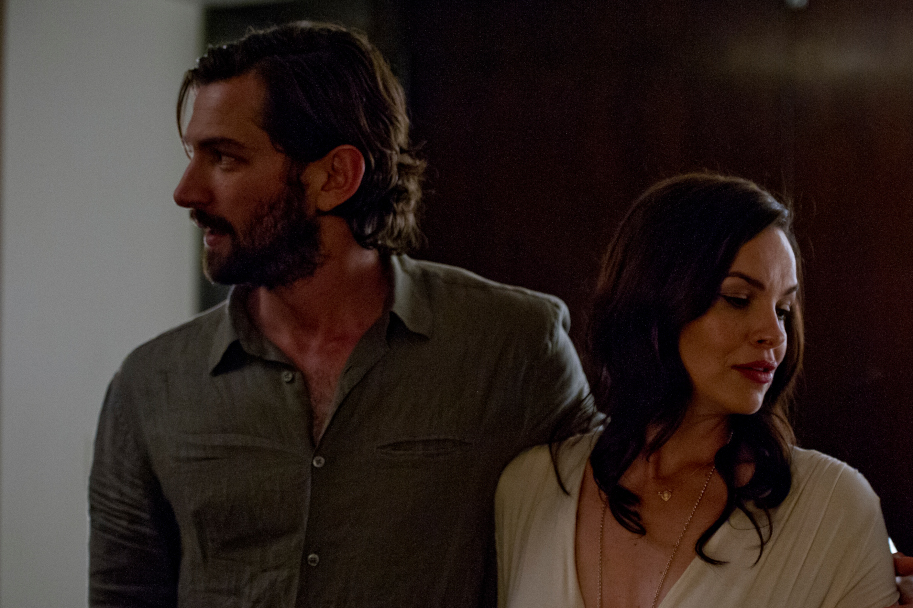
BEST WORK: Kusama is truly at the top of her game with her 2015 film THE INVITATION, a moody little movie that shows off her uncanny ability to express passion in an incisive manner. Starring Logan Marshall-Green as Will, the movie tells the story of old friends gathering for a dinner party. At least, that's how it begins. Will has been invited to reconnect with past acquaintances by his ex-wife Eden (Tammy Blanchard), the pair having separated after losing their only son at an early age. Now, reunited with his old flame, dear friends, and new lady at his side, Will can't help but feel that something is amiss. As the evening progresses and the shadows grow darker, it feels as if Will is slowly being suffocated under the pressure of all of this happiness. Eden explains that she has joined an exciting new religious movement, or what most would call a cult, and she's inviting all of her longtime friends to join. She claims that she's finally acheived happiness again, as perverse as it may seem, and she only wishes for her loved ones to experience the same bliss. To Will, it seems as though she's simply forgotten the past, or chosen to ignore it. How can she walk around and smile as though their son never existed? How can she feign a smile in the midst of Will's immeasurable sadness? Has she lost her mind? Has Will? As the night plunders on, the situation slowly comes to a head, as friends who once shared happy memories now struggle to make quaint conversation over the many courses of a beautiful dinner party.
Dripping with tension, THE INVITATION feels like a screw slowly tightening itself into your skull. While many use Los Angeles' bright and sunny atmosphere to create beautiful well-lit stories about pretty people in favorable situations, Kusama flips the dream scenario on its head. In Kusama's world, a place that is always streaming with sunshine is not to be trusted. As the setting grows darker, so, too, does the situation inside the house grow more tense. The shadows begin to create a claustrophobic effect which take hold of Will's psyche, ratcheting up the paranoia until even the audience feels weighed down by the tenacity of the evening's events. It's a wicked exercise in tension, and a wonderful example of Kusama's very purposeful style of filmmaking.
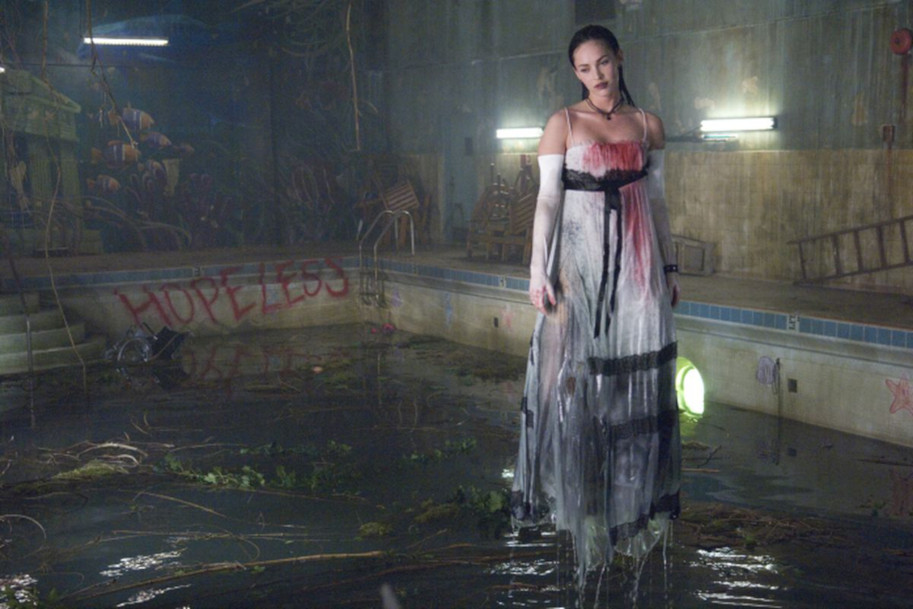
CAREER DEFINING MOMENT: When two best friends trot down to the local dive bar to watch a cute new boy band play guitar in shiny black eyeliner, they expect a night full of flirting, underage drinking, and general merriment and teenage hijinks. Instead, they find themselves engulfed in flames, as a small fire grows and burns down the entire establishment, forcing the girls to part ways as Jennifer (Fox) saunters off with the lead singer and Needy (Amanda Seyfried) is left to find her own way back home. Once reunited, it soon becomes clear that there's something wrong with Jennifer. Little does Needy know, her best bud since basically birth has now been reborn as a succubus, hellbent on destroying and defiling every boy she comes into contact with — maybe even going as far as to devour Needy if the moment moves her. Now, with her lifelong friend intent on murdering every boy on campus, Needy has no choice to but to stand up to Jennifer for the first time in her life — and quite possibly, her last.
Written by JUNO's Diablo Cody and starring TRANSFORMERS' Megan Fox, JENNIFER'S BODY is undoubtedly the film that put Kusama on the map. Some cinephiles saw GIRLFIGHT when it played at Sundance back in the day, and some casual moviegoers happened to catch AEON FLUX when it played in theaters, but whether they loved it or hated it, JENNIFER'S BODY is the movie that put Kusama's names on everyone's lips, putting her on the map for better or for worse.
Poorly marketed and even more poorly received, most people just didn't understand what they were looking at when they watched JENNIFER'S BODY for the first time in 2009. Was it a slapstick comedy with a little gore thrown in? Was it a horror movie with two beautiful actresses that teetered on the edge of popular rom-com absurdity? It was hard for many to digest this multi-layered, genre bending masterpiece when it first arrived, mainly because most people (especially American audiences) were very much used to putting their movies in specific categorial boxes where they were only allowed to be one thing. A movie could be a horror film, or it could be a romance. Perhaps a little comedy is okay, but too much wit and you've landed yourself in stand-up territory. It was just too much to fathom that an unnerving tale of toxic friendship could be played out through such humorous intentions. JENNIFER'S BODY was years ahead of its time, just as director Kusama has always been, and will probably continue to be throughout all the rest of her films.


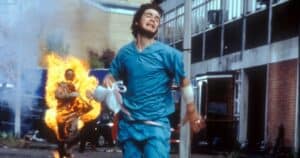






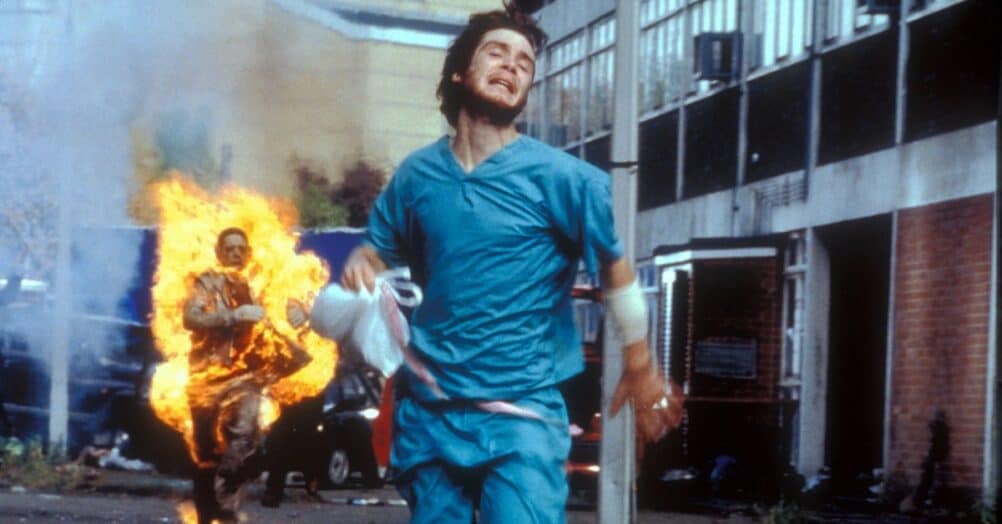
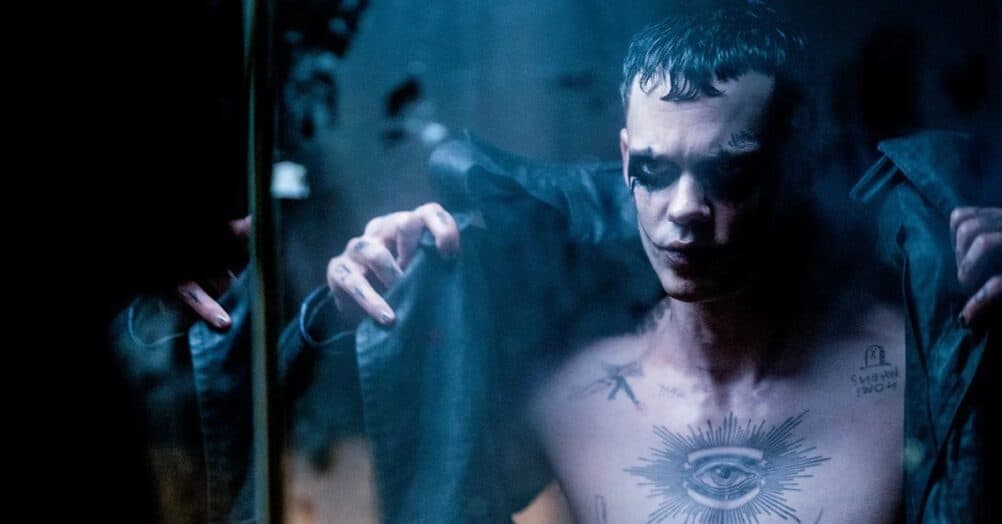
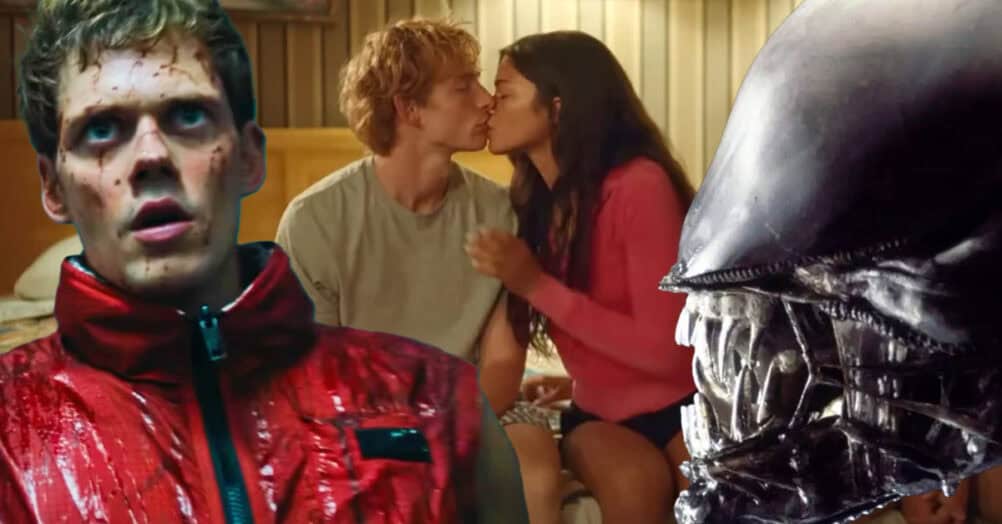

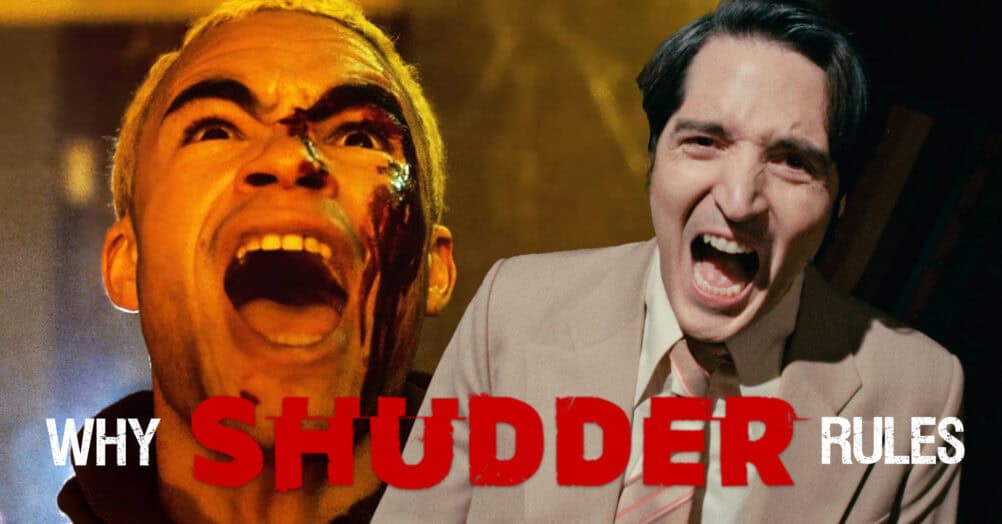


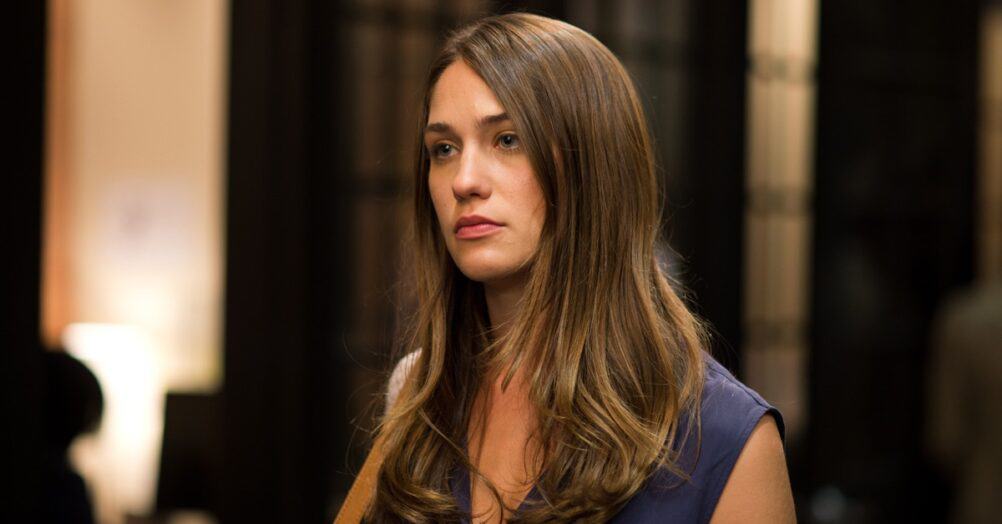

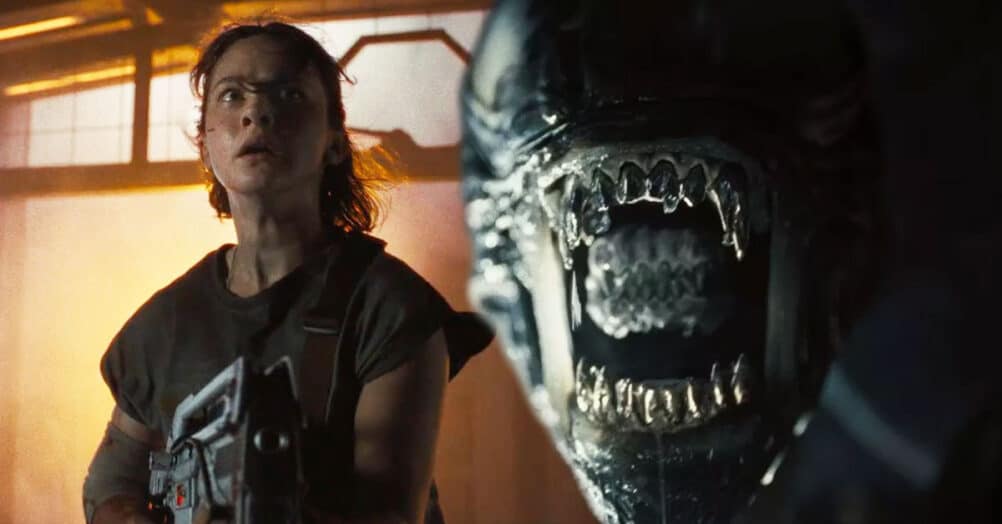
Follow the JOBLO MOVIE NETWORK
Follow us on YOUTUBE
Follow ARROW IN THE HEAD
Follow AITH on YOUTUBE